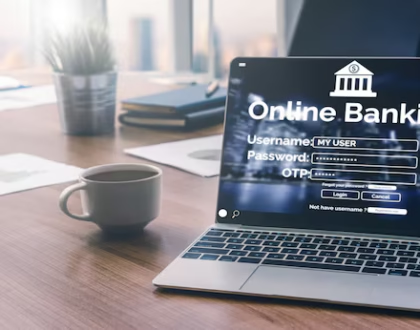Local SEO: How to Dominate Your Local Market

by Web Digital
Introduction to Local SEO
In the digital age, Local SEO: How to Dominate Your Local Market. Search Engine Optimization is a powerful strategy that helps businesses promote their products and services to local customers at the exact time they’re looking for them online. By optimizing your online presence for local searches, you can attract more local traffic, increase foot traffic to your physical store, and ultimately drive more sales.
The Importance of Local SEO for Businesses
Local SEO is essential for businesses that operate on a regional, as opposed to a national, level. While national SEO focuses more on ranking in searches across the country, local SEO prioritizes appearing on SERPs (Search Engine Results Pages) in a specific location. This strategy relies on marketing your brand, products, and services to local leads and customers. It’s a way to drive more relevant traffic to your site and bring in leads that are more likely to convert.
Optimizing Your Google My Business Profile
Google My Business (GMB) is a free tool that allows businesses to manage their online presence across Google, including Search and Maps. Optimizing your GMB profile is one of the most effective ways to improve your local SEO.
- Claim and Verify Your Business: Ensure that you claim your business on GMB and verify it to gain control over your business listing.
- Complete Your Profile: Fill out all the necessary information such as business name, address, phone number, website, business hours, and categories. The more detailed your profile, the better.
- Add Photos and Videos: High-quality images and videos make your profile more appealing and can help you stand out from competitors.
- Update Regularly: Keep your profile updated with the latest information about your business, including special hours, new services, and promotions.
Local Keyword Research
Keyword research is a fundamental part of SEO. For local SEO, it’s essential to focus on keywords that are relevant to your local audience.
- Use Location-Specific Keywords: Incorporate the name of your city, neighborhood, or region into your keywords. For example, if you own a bakery in Austin, you might target keywords like “Austin bakery” or “best bakery in Austin.”
- Long-Tail Keywords: Local searches often include long-tail keywords. Phrases like “best pizza in downtown Chicago” are more specific and less competitive than broader terms.
- Use Keyword Tools: Tools like Google Keyword Planner, Moz, and Ahrefs can help you identify the best local keywords for your business.
On-Page SEO for Local Search
On-page SEO involves optimizing individual web pages to rank higher and earn more relevant traffic in search engines.
- Title Tags and Meta Descriptions: Include your local keywords in your title tags and meta descriptions to improve visibility in local searches.
- Header Tags: Use header tags (H1, H2, H3) to structure your content and include local keywords.
- NAP Information: Ensure that your business’s Name, Address, and Phone number (NAP) are consistent across your website and other online platforms.
- Local Content: Create content that is relevant to your local audience. This could include blog posts about local events, news, or activities related to your business.
Building Local Citations and Backlinks
Citations are online mentions of your business that include your NAP information. Backlinks are links from other websites to your site. Both are crucial for local SEO.
- Local Directories: List your business in local online directories such as Yelp, Yellow Pages, and TripAdvisor. Ensure that your NAP information is consistent across all listings.
- Industry-Specific Directories: Find directories specific to your industry and get listed there.
- Local Newspapers and Blogs: Reach out to local newspapers and blogs for potential backlink opportunities. You can offer to write guest posts or be featured in local news stories.
Encouraging Customer Reviews
Customer reviews are a significant factor in local SEO rankings. Positive reviews not only improve your rankings but also build trust with potential customers.
- Ask for Reviews: Encourage satisfied customers to leave reviews on your GMB profile, Yelp, and other review platforms.
- Respond to Reviews: Engage with your customers by responding to their reviews. Thank them for positive feedback and address any concerns raised in negative reviews.
- Make It Easy: Provide clear instructions on how customers can leave reviews. You can send follow-up emails with direct links to your review pages.
Leveraging Social Media for Local SEO
Social media can enhance your local SEO efforts by increasing your online visibility and engagement with the local community.
- Local Engagement: Engage with local events, businesses, and influencers on social media. Share and comment on their posts to increase your visibility.
- Use Local Hashtags: Incorporate local hashtags into your posts to reach a broader local audience.
- Share Local Content: Promote content that is relevant to your local audience, such as local events, community news, and collaborations with other local businesses.
Conclusion: The Benefits of Dominating the Local Market
Dominating your local market through local SEO can provide numerous benefits for your business. By optimizing your online presence for local searches, you can attract more local customers, improve your visibility and credibility, and drive more sales. Local SEO is an ongoing process that requires consistent effort, but the rewards are well worth it. By leveraging the strategies outlined in this guide, you can position your business for success in your local market and achieve sustained growth.
Recommended Posts

Level Up Your Online Presence: A Digital Marketing Guide for Wasaga Beach Businesses
December 4, 2024

Education Marketing in Whitby: Engaging Students Online
December 4, 2024

